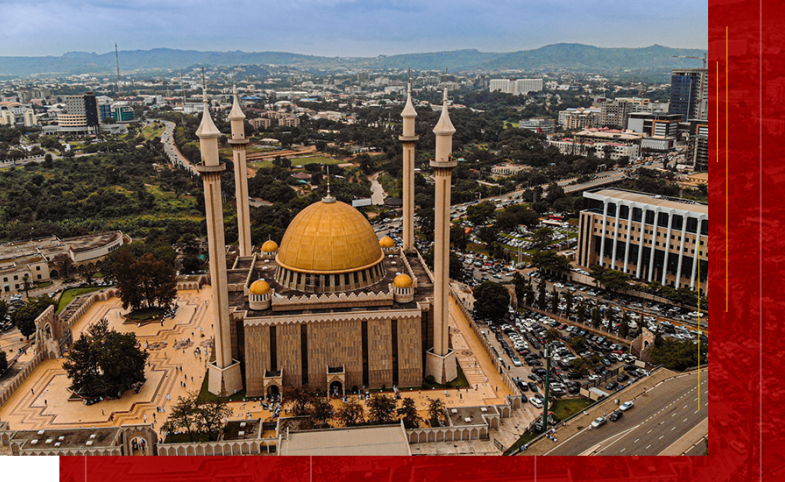The CPD Blog is intended to stimulate dialog among scholars and practitioners from around the world in the public diplomacy sphere. The opinions represented here are the authors' own and do not necessarily reflect CPD's views. For blogger guidelines, click here.

Public Diplomacy in the News: Creative Cities, Saudi Arabia's AI Boom, & Jefferson's Ramadan Dinner
“Public Diplomacy in the News” is a CPD Blog series by Andrew Dubbins that spotlights noteworthy stories on public diplomacy topics such as cultural diplomacy, nation branding, exchange programs, international events and conferences, digital diplomacy, and strategic global communications.
UNESCO welcomes 58 new creative cities on World Cities Day. Marking World Cities Day 2025, UNESCO added 58 new members to its Creative Cities Network (UCCN), expanding to 408 cities across over 100 countries. These cities—recognized for fostering culture-driven urban development—span diverse fields such as literature, music, gastronomy, design, and for the first time, architecture. From New Orleans to Riyadh, and Kyiv to Abuja (pictured above), each city demonstrates how creativity can fuel local innovation, social cohesion, and sustainable growth. UNESCO Director-General Audrey Azoulay emphasized that the network strengthens global collaboration where culture serves as a concrete driver of development and a shared public good.
Saudi Arabia bets big on artificial intelligence. Saudi Arabia is channeling its vast oil wealth into a sweeping effort to become a global leader in artificial intelligence, centered on its state-backed tech firm, Humain. Unveiled by Crown Prince Mohammed bin Salman, the company aims to make the Kingdom the world’s third-largest AI market by leveraging its cheap, abundant energy and rapid infrastructure expansion. Humain plans to build six gigawatts of data centers by 2034, backed by a $3 billion partnership with Blackstone and collaborations with Nvidia, AMD, and Amazon Web Services. Its AI operating system, Humain One, already automates much of the company’s internal operations. As Vision 2030 faces economic headwinds, Saudi Arabia’s AI drive has become a national priority and a direct regional challenge to the UAE’s rival AI initiative, G42.
Jefferson’s Ramadan dinner that secured peace with Tunis. In 1805, President Thomas Jefferson used the power of hospitality to avert war with Tunis by hosting Tunisian envoy Sulaiman Mellimelni at the White House during Ramadan, adjusting the dinner hour to honor his guest’s faith. Against the backdrop of the Barbary conflicts, Jefferson sought to resolve tensions over a seized Tunisian ship through diplomacy rather than tribute. The dinner—held in the intimate Green Room with select guests including John Quincy Adams—epitomized Jefferson’s belief that personal diplomacy could build trust across cultures. Though formal negotiations were left to Secretary of State James Madison, Mellimelni’s cordial treatment and the eventual compromise agreement preserved peace and showcased the success of Jefferson’s “culinary diplomacy” in advancing American interests abroad.
Matthew Goetz / The White House Historical Association
Tensions rise ahead of Brazil’s COP30 as Trump’s “retributive diplomacy” looms. Global delegates are bracing for disruption at the upcoming COP30 climate summit in Belém, Brazil, amid fears that President Donald Trump’s “retributive diplomacy” could undermine progress on climate goals. Following the U.S. withdrawal from the Paris Agreement, Trump’s team has used aggressive tactics at recent negotiations, blocking carbon levies and threatening officials, to pressure nations aligned with petrostate interests. Diplomats warn of U.S.-led interference through social media and political influence, even as major leaders from Europe, the U.K., China, and India prepare to attend. While Trump dismisses climate change as a “hoax,” COP30 organizers insist the summit remains a chance to reaffirm international cooperation and advance commitments to renewable energy and climate finance.
Kenza Bryan and Alexandra White / Financial Times
FIFA unveils peace prize ahead of 2026 World Cup draw. FIFA has launched the annual “FIFA Peace Prize – Football Unites the World,” honoring individuals who take extraordinary action to promote peace, with the first award to be presented at the 2026 World Cup draw in Washington, D.C. FIFA President Gianni Infantino said the prize reflects football’s power to unite people in an increasingly divided world. The draw, hosted at the Kennedy Center on December 5 with U.S. President Donald Trump in attendance, will set the stage for the tournament to be held across the United States, Canada, and Mexico from June 11 to July 19, featuring a record 104 matches.
Visit CPD's Online Library
Explore CPD's vast online database featuring the latest books, articles, speeches and information on international organizations dedicated to public diplomacy.
POPULAR ARTICLES
-
January 29
-
January 20
-
January 28
-
January 2
-
January 8
Join the Conversation
Interested in contributing to the CPD Blog? We welcome your posts. Read our guidelines and find out how you can submit blogs and photo essays >.









